#king of uke nomination
Explore tagged Tumblr posts
Text
KING TAICHI!!!!!!!!!!
He’s nominated in the BL awards for the King of Uke award!!
TAICHI FOR KING!!!


#BL awards#i hear the sunspot#hidamari ga kikoeru#sagawa taichi#taichi sagawa#nomination#manga#comics#japanese bl#BL award nomination#king of uke nomination#vote taichi#king taichi
12 notes
·
View notes
Text

this a view of someone who's ignored european developments since 2007, opting for a rosy, outdated view of european politics, i.e. the exact type of american committing the exact type of mistake i'm warning about.

to address this point by point: not only has inflation been a global issue, but the US has consistently enjoyed the lowest inflation of any developed economy. american CPI has remained below the british, polish, and eurozone average numbers. european economies have to deal with fallout from the russian invasion of ukraine that the us can ignore: notably, in energy prices, as the US became self-sufficient in energy (and never imported any from russia to begin with, something squeezing the german economy). america is also not hosting millions of ukrainian refugees.
when discussing european instutions—and "europe" in general—one has to be more specific. do you mean the overarching institutions of the EU, criticized for a democratic deficit that many have pinpointed as one source for euro-skepticism and the rise of the far right? the EU Council, widely ignored and headed by charles michel, an incompetent, blatant nepobaby appointment whom everyone grinds their teeth over? the EU parliament, recently filled with a fresh batch of far-right hooligans, which functions more or less as a rubber stamp for the commission? the EU commission itself, headed by VdL, the latest in a string of failed local politician commissioners (who remembers the alcoholic swindler juncker?) masquerading as technocrats? the ECB, which smothers the monetary (and through the maastricht criteria, the fiscal) policy of eurozone members, thereby fueling resentment, far-right movements, and economic disparity? and all of this held hostage by the veto of one orban or fico, —or the german supreme court, when it decides it's had enough with public investment. those institutions, which remain so opaque that even educated americans—and europeans—aren't entirely aware of their function?
or do we mean the institutions of individual countries, ranging from undemocratic autocracies like hungary to the fief of the jupiter king, who called elections in june, lost them, refused to nominate a prime minister from the winning coalition, didn't name any for over a month, and then appointed a rightwing politician from a party that scored dead last, sidestepping his own centrist party? the UK, where sir keir is handing out five years in jail time to climate protesters, raising tuition fees, relying on private investment companies, and through rachel reeves' plan to fix the alleged budget hole left by hunt before further investment, again enacting austerity? this is all front-page headline news from the last half year.
european countries indeed have cheaper healthcare costs, better pensions, and other public goods that the united states does not. when considering "quality of life," remember, however, that most european countries have unemployment rates considered astronomic in america, especially for under-35s:

to focus again and again on european social democracy is to ignore that it has been steadily eroded since the end of the cold war and especially since the great recession by neoliberal political forces that crush the left and open the door for the far right. in the most blatant example, beside's macron's legislative politricks, the IMF-ECB-EC troika cut off euro cash liquidity flow to greece when syriza was trying to undo austerity under varoufakis. the greek collapse consigned a generation to economic failure, killed seniors, and curtailed possibilities for the youth. this erosion happened even in the nordic model, long imagined by americans as nothing short of a utopia:
In part due to the scrapping of wealth and inheritance taxes and a lower corporate tax than both the U.S. and European averages, Sweden has one of the most unequal distributions of wealth in the world today: on a level with Bahrain and Oman, and worse than the United States. Perhaps most dispiriting for Sanders, Sweden also now hosts the highest proportion of billionaires per capita in the world. Many of the country’s trademark social services are now provided by private firms. Its private schools even benefit from the same level of state subsidy as public schools—a voucher system far more radical than anything in the United States and that Democratic politicians would be crucified for advocating. Both here and there, right-leaning commentators in 2020 decried Sanders’s portrait as little more than what Johan Norberg, Swedish author of The Capitalist Manifesto, has called a 1970s “pipedream.” On this, Swedish observers on the left gloomily agree: despite official rhetoric, the “Nordic welfare model” is now more nostalgic myth than reality. (x)
to problematize further, there's an unadressed first world perspective: who's getting the good quality of life, why are the main economies of the EU so wealthy, and how does the EU continue to enrich itself? there are certainly many living outdoors today, drowning in the mediterranean, or dying of exposure in białowieża. fortress europe is a crime against humanity—and it doesn't beat back the far right. it weakens civic and human rights, undermines legal oversight, and criminalizes humanitarian engagement, allowing an authoritarian creep.
you shouldn't understand the political and the historical as a snapshot in time, but as a moving train. this is the state of europe today. all of the above is necessarily a simplification and an abbreviation, but there's a trajectory you can begin to trace out: given all of the above, where do you think europe is headed?
#sorry that the US and Poland are the same shade of pink in the CPI chart i couldn't change it#please stop idealizing europe's political trajectory. it's 2024. you've got to stop.#i'm not trying to insult or condescend the person who left this but to shed light on what are extremely obvious issues mystified#by a decades-old mirage of europe still trapping hordes of well-meaning americans who ought to know better#if tugoslavija were here...
146 notes
·
View notes
Text
Andrew Scott not being nominated for a bafta don’t worry king im on my way to sink the UK to the bottom of the ocean for this actually
109 notes
·
View notes
Text
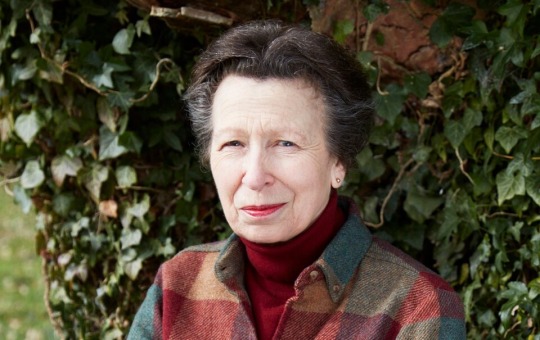
The Princess Royal interview: ‘I’m not sure that rewilding at scale is necessarily a good idea’
With conservation close to her heart, HRH explains what’s needed to save animals under threat and how the monarchy plays its part
By Jessamy Calkin for The Telegraph
Inside St James’s Palace there is a bit of a flutter about the weather. Her Royal Highness the Princess Royal has several engagements today, and things are not looking good; due to wind, the helicopter might not be able to land at the designated sites, which will make travelling times to and from events longer.
The staff are waiting to be informed by the police, who are in touch with the helicopter pilot. HRH, as everyone seems to call her, has not yet been told.
She has a lot to fit in: directly after our interview, she is off to a meeting about Gordonstoun school, in London, by car, then by helicopter to give a speech at an English Rural Housing Association conference in Bedfordshire, followed by a visit to the Aircraft Research Association, where she will unveil a plaque, then back to St James’s Palace to change for evensong at The King’s Chapel of the Savoy, where she will be reading the lesson for the Royal Victorian Order.
Her day will finish at about nine, when she will be able to eat. Quite often she has a dinner engagement as well. Next week she is going to Mumbai for four days.
Not for nothing is she known as the hardest-working royal. She is involved with more than 300 charities, organisations and military regiments, and last year carried out 200-plus engagements – more than any other member of the Royal family.
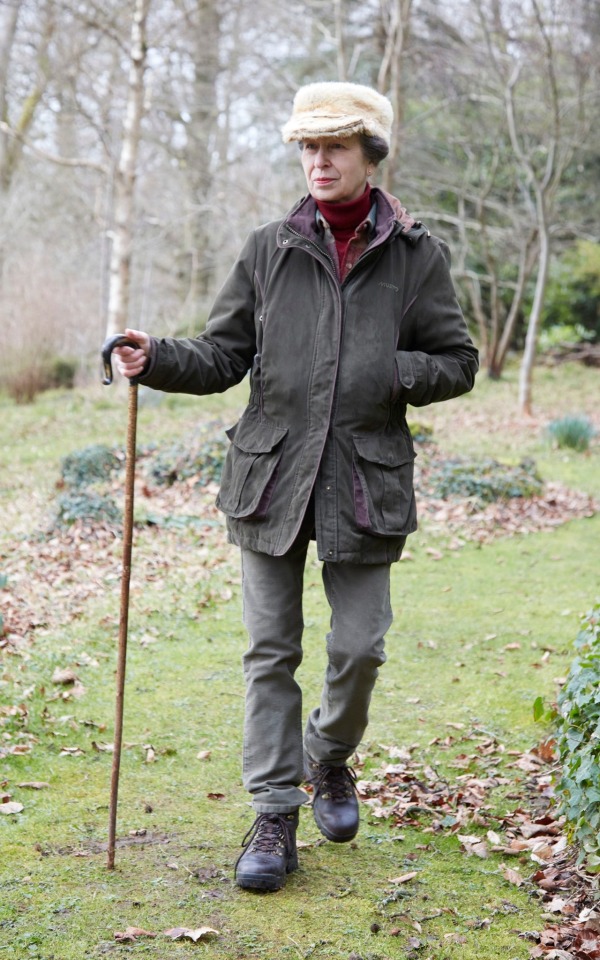
Her first official engagement was at the age of 18; shortly afterwards, in 1970, she became president of Save the Children – a position that led to her being nominated for a Nobel Peace Prize – and her work with that charity continues to this day.
Early on, her father, the Duke of Edinburgh, advised her to pick the charities she was interested in – and her interests have multiplied.
But one charity that is particularly close to her heart is the Whitley Fund for Nature, which is why I’m here. Started by Edward Whitley OBE as the Whitley Awards, WFN is now celebrating its 30th anniversary, and the Princess has been a patron for 24 years.
The annual ceremony takes place at the Royal Geographical Society in London and is colloquially known as the Green Oscars; WFN distributes grants totalling around £500,000 to worthy international winners.
So far, £20 million has been awarded to 200 conservationists across 80 countries. And the Princess has never missed a single ceremony, presenting the awards and delivering heartfelt speeches.
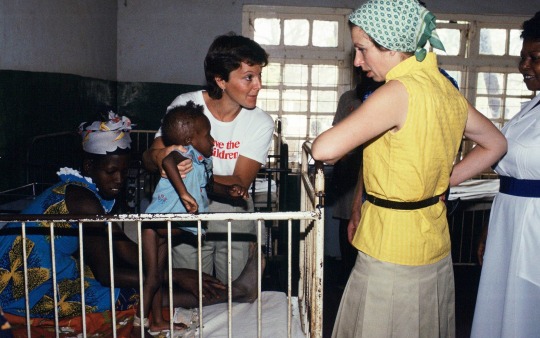
HRH is quite probably the most respected member of the Royal family. Her lack of pomp and ceremony and the low-key dedication with which she carries out her duties is much admired. There is no whingeing. She refused titles for her children, Peter and Zara.
She is well known for her dry sense of humour. She is an exceptionally accomplished horsewoman and in 1976 became the first member of the Royal family to compete in the Olympics; she had won Sports Personality of the Year five years earlier. She famously resisted an attempted kidnap in 1974.
She has also become an inadvertent style icon, often rewearing outfits she first wore decades ago, which is both charmingly thrifty and impressive in that she can still fit into them, and she seldom buys anything that is not made in the UK.
She recently made a good-natured appearance on her son-in-law Mike Tindall’s podcast The Good, the Bad & the Rugby and she seems like an all-round good egg.
She has both gravitas and spirit – there was some very moving footage of her accompanying her mother’s coffin on the long journey from Balmoral to Westminster Abbey.
Back in St James’s Palace, Charles, her private secretary, is arranging the chairs, anticipating where she might like to sit. HRH arrives in a striking bright-green suit over a striped silky shirt and heads smartly for a different chair than the one offered.
How did she first get involved with Whitley? ‘That’s entirely Edward’s fault,’ she says in her crisp voice. ‘But the common denominator is Gerald Durrell.’
The Princess grew up reading Durrell’s books and became patron of his zoo in Jersey, part of what is now the Durrell Wildlife Conservation Trust, in 1972. ‘He very kindly asked me to become involved in the zoo – as it was then – in Jersey, and Edward [later became] one of Durrell’s trustees.
‘He and I had similar beliefs in what Gerald was doing. Apart from the fact that Gerald wrote very good books, during his travels he seemed to understand better than most the impact on the populations in which animals lived and the relationship between them and their animals.
‘Being told you have to save this, that and the other is all very well but have you been there? Have you ever tried living in that environment to find out what that means to them? Because the fundamental point is that unless the conservation comes from the local area, it won’t be sustained.’
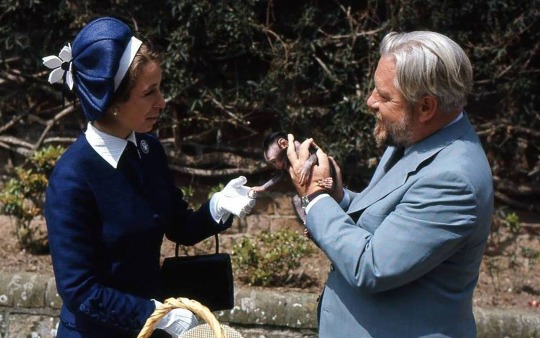
No one is going to save an animal just because they’re told to. ‘You’ve got to work out how the animals are going to survive with the people who live there, who will be the ones who make sure that it works.’
What was Durrell like? ‘Every bit as entertaining as you would think. His humour but also his understanding of the relative importance of things in other people’s lives was absolutely fascinating – and he was spot on.’
Durrell said he felt ‘sympathy for the small and ugly; since I’m big and ugly I try to preserve the little ones’. He was an expert on captive breeding, with a view to releasing into the wild, and he tended to select animals that were close to extinction, or those that could best be helped, or just ones that were not very charismatic.
‘Yes, not the sexy ones,’ says the Princess. ‘Or the obvious ones. His approach was very holistic. He understood the impact of habitat – not just on one species but how all of the things that lived in that habitat related to each other and that you couldn’t replicate that instantly somewhere else – it was very specific to an area.’
Gerald Durrell died in January 1995, of septicaemia. He was an alcoholic and had successfully received a liver transplant but died of complications it gave rise to. ‘He told me that there was no point doing a transplant because his old liver had got used to being fed all the things he’d been given to eat and drink in order to make deals as he went round the world,’ the Princess says, smiling.
Durrell’s legacy is long. One of his innovations was to establish training for conservationists from around the world. The first trainee went on to become the first director of the National Parks and Conservation Service in Mauritius, and thousands of students from 151 countries have since attended the centre, whose graduates became known as Gerald Durrell’s Army.
This became the title of a book by Edward Whitley, who travelled round the world to assess the progress of some of the trainees and the animals they were conserving – such as the largest eagle in the world in the Philippines and Alaotran gentle lemurs in Madagascar.
To launch the book in 1992, Whitley was invited to give a talk at the Royal Geographical Society, and he asked the Princess to come along. It was at the book launch that he decided to set up the charity.
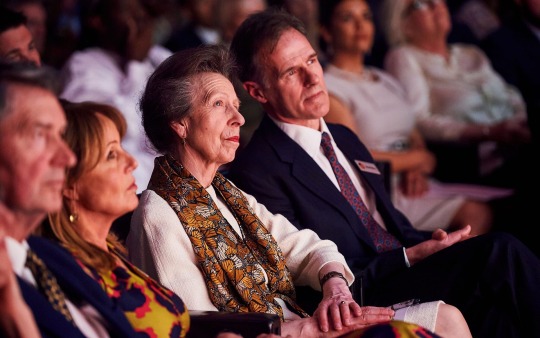
‘I sat down with Nigel Winser, who was the deputy director of the RGS and a long-time friend, and we designed what became the Whitley Awards on the back of a napkin,’ he tells me. In 1999, Whitley asked the Princess to become a patron. By then, ‘Attenborough was already on board, which encouraged her to think it wasn’t a fly-by-night organisation which would crash and burn’.
The awards focus on community-based conservation projects around the world. In order to qualify, each project has to be up and running – it cannot be a pipe dream. Initially there was only one award; this year there were six – of £40,000 each in project funding – plus a Gold Award of £100,000, given each year to a past winner in recognition of their outstanding contribution to conservation.
‘The reason WFN is so effective,’ says Alastair Fothergill, whose company Silverback made the acclaimed TV nature series Wild Isles, and who like Attenborough is a WFN ambassador, ‘is because its grants are awarded at the very cutting edge of conservation, where relatively modest funds can go a long way. Over the years, the fund has kickstarted the careers of many pioneers who have become leading lights in conservation.’
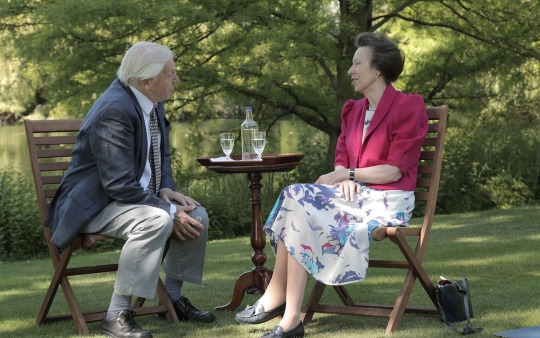
This year’s projects included safeguarding seabird nesting sites in Mexico; establishing ‘lion guards’ promoting coexistence in Cameroon; and protecting pangolins in Nepal, lemurs in Madagascar, freshwater fish in Lake Victoria and saiga antelope in west Kazakhstan. Each one heavily involves local communities.
In addition, WFN provides continuation funding for award-winners. To mark the 25th anniversary of Whitley, Kate Humble, also an ambassador, and Attenborough hosted an event at the Natural History Museum to help raise £1 million for continuation funding.
‘It was the first really big fundraiser we had,’ says Humble. ‘And one of the donors underwrote the entire cost of the event – so everything raised went into the continuation fund.’
The RGS ceremonies are joyous events. In addition to being presented with their award by the Princess Royal, each winner has a short film made of their work, narrated by Attenborough, screened at the event. ‘I’ve been going for 20 years,’ says Humble, ‘and every year I’m blown away by the winners – what they’ve overcome, what they’ve achieved.
‘You hear so much bad news, and you think, you know what? The world can be OK because people out there are doing this stuff – it’s demonstrable, it’s scientifically rigorous and it’s working. [It’s] an incredibly uplifting and inspiring evening.
‘And every year I watch Princess Anne speak and she never sounds like she’s reading someone else’s words. She cares deeply about what this charity does and what these people who win the awards have achieved – she is not a figurehead just trotting out nice words and providing a photo op. She could run the charity, she knows it so well and cares about it so deeply.
‘I’m not anti-royal,’ says Humble, ‘but neither am I someone who would go and wave a Union Jack. But when I see her I think, frankly you’re worth whatever it is we pay.’
HRH talks with fluency and knowledge on every subject. ‘She’s like a sponge – it’s unbelievable the information that’s stored in her brain,’ said her daughter Zara in an interview for ITV’s Anne: The Princess Royal at 70. ‘It’s quite annoying as well.’
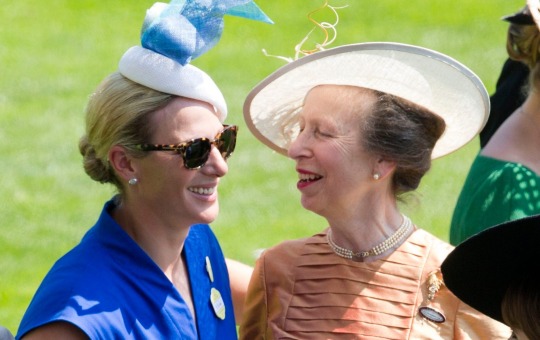
She needs to know a lot because she works with a diverse range of charities, taking in early years, healthcare, microfinance and animal welfare. Promoting collaboration between charities is key. ‘I do a lot of that,’ she says now. ‘I have meetings bringing them together which they all seem to enjoy, though sometimes it’s a bit illogical.
‘Knitting together all the international NGOs is important, but we need to look slightly outside the box – can we do this better, are there ways of helping people to be more sustainable?’
The Princess does occasionally discuss conservation with the King, she says, but she won’t say if they always agree. And her grandchildren? How does she teach them about conservation? (She has five, four girls and a boy.)
‘I don’t see so much of them but making the point that they live in an area which they shouldn’t take for granted is important I think; both my children are aware of that.’
Gatcombe Park in Gloucestershire, where the Princess and her husband, Vice Admiral Sir Timothy Laurence, live in an 18th-century manor with 730 acres of parkland, has some beautiful trees – ‘the ones that survive – quite a lot don’t, we live on Cotswold brash which is not popular with plants; but having said that we have beeches.
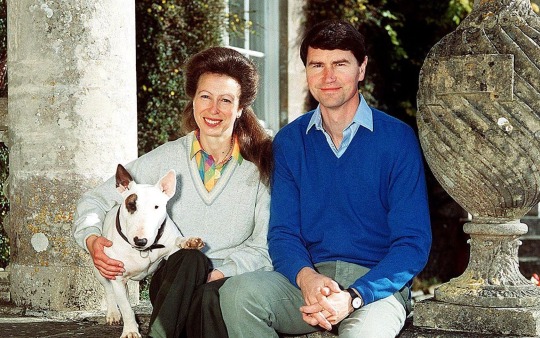
‘You’ve just got to live with what’s there and make sure it doesn’t get overwhelmed. I’m not sure that rewilding at scale is necessarily a good idea – it probably is in corners, but if you’re not careful you rewild all the wrong things because they are just the things that are more successful at growing.
‘My biggest row at home is ragwort. Lots of people think that ragwort is absolutely brilliant because butterflies love it, but it’s not good for the horses [it is toxic]. I would say don’t take all the ragwort out, just where the horses are – but it’s quite a delicate balance.’
There are, she says, ‘quite a lot of horses at home, but they’re other people’s as well’. She rides whenever she can. ‘It’s a very good place to observe nature from.’
The Princess supports several horse-related charities, and became patron of Riding for the Disabled in 1971, and president in 1985. ‘It was just becoming a national body when I was invited to become a patron – at that stage I knew nothing about disability but the concept that ponies or horses could make a difference was obviously interesting and I knew about them. No matter what the disability was, the answer was, if they’d like to ride, we’ll give it a go. The commonality of the experience was important.’
Essential things for running a charity, she says, are evaluation and thinking of the long term. She cites the influence of Eglantyne Jebb, founder of Save the Children, ‘who constantly evaluated programmes to see if they were making a difference, whether they were doing the right things and whether people were invested’.
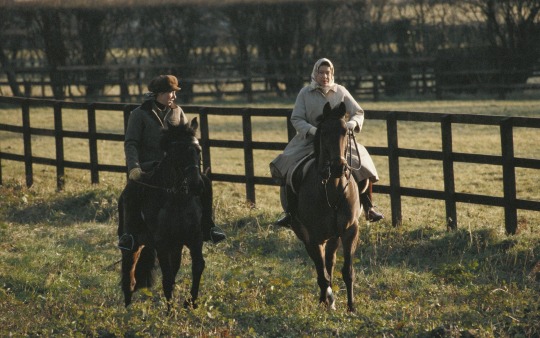
And it’s important to keep projects focused and manageable. ‘I’ve come to the conclusion that scale is the thing that defeats any good idea, because it can get to a size where people can’t cope.’
She has spoken in the past about the huge value of long-term commitment, in terms of the constitutional monarchy as well as in charity work. ‘Seeing things in the long term is a challenge,’ she says now, ‘but maybe part of our [value] – as a family – is long-term continuity, because the long-term view is quite hard to come by. And I think we can do that.’
May I ask what she might have done as a profession in another life? HRH laughs and looks vaguely impatient. ‘You can ask but I’ve no idea.’ Does she ever think about that?
‘Not really, and it’s way too late to have those concerns – in a way the fortunate part of my life has been the broad spectrum, to see so much. Not having a very specific interest has been a bonus, I suppose. We all have ways of doing things and with Whitley it is the practical aspects of what they do, and how to support them [that has been my focus].’
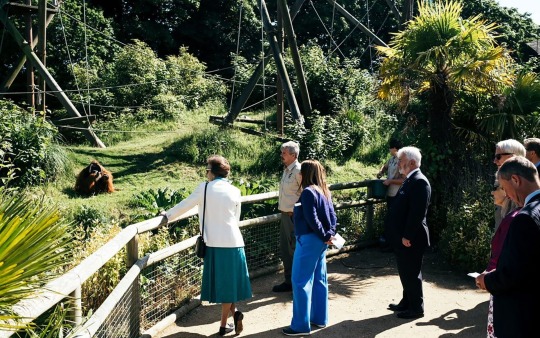
Edward Whitley, a member of the wealthy Greenall Whitley brewing family, set up Whitley Asset Management in 2002, alongside its finance director Louise Rettie, to serve a small number of clients. But there had always been animals in his life – his great-grandfather founded a small charity called the Whitley Animal Protection Trust; his great-great-uncle Herbert was an eccentric animal breeder who started Paignton Zoo.
In Edward’s office is a stuffed cockatoo that belonged to Herbert and a photograph of Mary, his favourite chimpanzee. Mary was famous for riding around on her tricycle and walking the dogs, or taking visitors by the hand and leading them round the zoo.
Edward studied English at Oxford then went into banking, joining NM Rothschild & Sons in 1983. He left in 1990 to write: Gerald Durrell’s Army came out in 1992 and he also co-wrote Rogue Trader, the autobiography of disgraced banker Nick Leeson, and worked with Richard Branson on his memoir.
Whitley is a tall, gentle man who doesn’t like talking about himself but is full of unbridled enthusiasm for WFN, and in particular its royal patron. ‘She transformed the charity – we never would have had the success we’ve had without her involvement. She saw what was possible and really helped us to achieve it, and she inspires the winners to do more. The winners are always pretty amazed at how she cross-examines them and cuts to the chase so quickly when she meets them.
‘She has an encyclopaedic knowledge of the world, and a phenomenal memory, and she is also very funny… And think of her father and the Duke of Edinburgh’s Award – she’s seen what a lifetime of work can achieve.’
In her speech at the Whitley Awards earlier this year, the Princess Royal cited her father, Gerald Durrell and Edward Whitley as the inspirations for her work with WFN. Among winners and their communities, she said, ‘it’s the global ambition to truly make a difference that has been astonishing’.
The awards, she continued, are for ‘the people on the ground, they’re the sharp end… It’s all very well to be here and understand what we think are the challenges, and want to make a difference, but when you meet the people who are actually out front and can turn that into a reality, it’s a real inspiration.’
Over the years, she has visited some of the winners’ projects, when her charity work takes her to those countries, ‘but not as many as I would like’, she says. In Uganda, for example, she met Dr Gladys Kalema-Zikusoka, who was working on improving hygiene in local communities after viruses had spread to gorillas she was managing in Bwindi national park. And in 1997, before she became a WFN patron, she travelled in a boat up the Amazon to see pink dolphins.
‘She was in Colombia for Save the Children and she asked the British embassy to include a visit to the Amazon in her trip – she was very interested in the dolphins,’ says Dr Fernando Trujillo, who went on to win an award in 2007.
‘The British embassy contacted me as an expert on rivers and dolphins. I was a little bit intimidated, and it was raining and I was worried we wouldn’t see any dolphins, but in the end we counted 32 – and she was so excited, every time she saw one she would jump up and down with excitement, and then rein herself in as if she suddenly remembered she was a princess. I could see her love for the environment was very genuine. From that day she was my favourite royal person.’
Another winner, Pablo Bordino, whose picture with HRH had been in the paper in Buenos Aires was flying back to Argentina. One of the flight attendants recognised him and when he arrived at the airport there was a television crew waiting to meet him. It raised the profile of his NGO - which protected marine life and habitats in Argentina - enormously and enabled him to generate further funding. ‘That’s the effect HRH has,’ says Whitley. ‘You can’t quantify it.’
Several award-winners went to the Princess’s 60th-birthday celebrations, including Claudio Padua, a successful businessman from Rio who gave it all up to pursue conservation, training at Durrell in Jersey and moving to a forest in Brazil with his wife, Suzana, and three children.
HRH had been to see them at their headquarters outside São Paulo and had taken an interest in their efforts to conserve the black lion tamarin, a monkey. They had no idea her visit would be such an ordeal, with all the security arrangements. ‘We had a call to ask what kind of security we had,’ says Claudio. ‘I said, “I have an old dog, that’s all.”’
‘She turned up with a security detail and entourage,’ Suzana adds. ‘They wanted to go into the forest to see the monkeys in our Land Rover and her security team asked, “Has this car been checked?” I said it hadn’t and they became very nervous but she ignored them and just got in anyway.’
Years later, the Paduas were invited to Buckingham Palace for her 60th. ‘It was a beautiful opportunity for us,’ says Suzana, ‘and as she came down the stairs she spotted us and said, “Oh how nice to see you. How are the monkeys?”’
The Whitley Fund for Nature is hosting a #PeopleforPlanet biodiversity summit on 6 and 7 November at London’s Royal Institution, where members of the public can hear live from Whitley Gold Award-winning conservationists from Africa, Central and South America, and Asia
#a new anneterview!#I love that she seems to remember everything and everyone#the part about her jumping up and down when she saw the dolphins#what a mood#princess anne#princess royal#british royal family#brf#newspapers#anned i quote
94 notes
·
View notes
Text
Ritsu/Takano and Yokozawa ChilChil BL Character Poll Voting Guide
From July 26th through August 12th, there will be daily voting open to account holders on ChilChil! This is a yearly poll for different BL characters that have been nominated across a wide variety of series.
Ritsu, Takano, and Yokozawa are all in separate categories for voting this year, so I'd like to encourage you to vote for them! Ritsu is in the "King of Uke" category, Takano is in the "King of Seme" category, and Yokozawa is under the "Knight of Sub Character" category.
Below, I've made a short guide on how to sign up for an account to make sure you don't get stuck on the same step I almost did.

First, click this pink button at the top of the page to create your account if you don't have one already.

Then, fill out this information however you'd like. The important thing is that in the date of birth area, you have to put the year in the first box. I know I reach a lot of Americans with this account, that's why I'm specifying that.
After that, you'll get an e-mail to confirm your account. From there, so long as you're logged in, you can vote once a day! It resets daily at midnight Japan time every day.
After you've signed up for your account, all you need to do is go to the polling page and locate Takano, Ritsu, and Yokozawa under the categories I specified above. I've given links to each of their direct voting pages below. As long as you're logged in, the links should work!



Takano | Ritsu | Yokozawa
Once you've voted for the day, it should display like it does in the above images. You can also leave comments that will be sent to Kadokawa and Nakamura if you'd like to about each of the characters, but only after you've voted at least once.
Thank you in advance for your help! :D
#sekaiichi hatsukoi#sekai ichi hatsukoi#sih#onodera ritsu#takano masamune#yokozawa takafumi#the reason yokozawa is listed under sub character is bc he's one in ritsu's story#this poll from what i can tell focuses on manga and he's only the main character in light novel format rlly#vote for whoever you'd like but i'd love to be able to get at least takaritsu to rank high after the confession earlier this year!
25 notes
·
View notes
Text
"The probable Liberal candidate for Mid-Devon at the next election"
I thought it might be worth discussing this line in more depth, with some further points about elections in late Victorian Britain, with some reference to the recent one.
Funnily, you can actually got through this largely word by word.
The
While many of them had been abolished, there were still a number of seats that elected two MPs, such as Bath and Devonport.
You still had some "university constituences" where Masters and Doctorate level graduates could vote for two MPs. These would persist until the 1950 General Election.
The UK has pretty much always used the plurality system for General Elections aka "first past the post". Highest number of votes wins. This can result in someone getting in with 34% of the vote, which happened at the 2024 election.
In the case of a two-member seat, the top two candidates got elected. This multi-member practice is still standard for local council elections.
Probable
The UK election period is pretty short. The last election had Rishi Sunak ask the King for a dissolution on 22 May, Parliament dissolved on the 30th and the deadline for nominations on 4 June, a month before the actual election on 4 July.
The Victorians had the actual voting spread over 24 days in the 1892 election; it was possible for a candidate to lose one election, quickly get nominated in another seat and win that one.
Candidates would not therefore be fully confirmed under the formal nomination by their local party, although today the national party has a good deal of control over the process:
However, it is today common place to have "prospective parliamentary candidates" in place before an election is called. This allows them to campaign without becoming formal candidates and being subject to our strict electoral spending rules.
The UK also has its own equivalent of "carpetbaggers", known as "parachute candidates". Party HQ will "parachute" someone they want into a safe or winnable seat, frequently to the at least mild displeasure of the local party. Notable parachutists include George Galloway, Boris Johnson, Margaret Thatcher and Roy Jenkins.
Liberal
The UK had three major parties in 1889:
The Conservative and Unionist Party, generally shortened to the Conservatives or the Tories. Led by the Marquess of Salisbury, the incumbent PM since the election of 1886 gave him an overall majority. The latter is an insulting term derived from an Irish word for "outlaw", but today can be used in a neutral way - the BBC's Style Guide allows it to be used for later references. The Conservatives do not use it themselves formally. The Unionist part referred to their support for the union between Great Britain and Ireland; they had significant support in the (more Protestant) Ulster province of the latter, six of the nine counties of which would become Northern Ireland. As such they opposed "Home Rule" i.e. Irish self-determination in domestic affairs with their own parliament, although Salisbury's government did implement various reforms in Ireland seeking to "kill Home Rule by kindness". They generally favoured protectionism and a policy of keeping Britain out of foreign alliances.
The Liberals: Led by William Gladstone, considered one of our greatest Prime Ministers. Known as the G.O.M. (Grand Old Man or God's Only Mistake, depending on your POV), he had been Prime Minister for the third time during a short-lived 1886 ministry started and ended over Home Rule - he'd forced out Salisbury by a defeat over the matter with Irish support, then had his legislation defeated in the Commons, forcing an election. The Liberals had split over Home Rule, a Liberal Unionist wing aligning with the Conservatives and eventually merging with them. The Liberals favoured increased worker rights and expanding the franchise.
Irish Parliamentary Party: Made up of Irish nationalists (commonly, but not always Catholic) who wanted autonomy and land reform, they were led by Charles Stewart Parnell. Opposed to militancy in the name of Home Rule or even full independence, which was getting quite common at this time. Parnell would foil an attempt to smear him as pro-violence by forged letters claiming he was complicit in a double assassination in Phoenix Park in 1882; he requested an official enquiry and the journalist, Richard Piggott, broke down under cross-examination. Piggott was then sued for libel by Parnell, lost, then fled to Madrid where he shot himself. However, the following year, Parnell was revealed via a divorce trial to have had a long affair with a married woman called Katharine ("Katie" to her friends, "Kitty" to her enemies, the latter being a slang term for prostitute) O'Shea, fathering three of her children and "living in sin" with her. The scandal was huge, with the Catholic Church coming out against him. Refusing to resign, the party split, with the majority becoming the anti-Parnell Irish National League. Parnell married Katherine in 1891, but his health was failing due to stomach cancer and heart disease - he would die in her arms four months later. His minority faction collapsed shortly after.
While trade unions were a growing political force, the Labour Party had yet to really come into being.
Candidate
In 1892, there were 6.16 million registered voters, therefore eligible to run for the House of Common. As is obvious, universal suffrage was not a thing at this point.
This page covers the qualifications to vote and ergo, I believe, run in 1900:
For further explanation:
Of full age means over 21. The UK lowered the age to 18 in 1969, two years before the US did.
Receipt of what we would today call benefits, bar medical ones, meant no vote. Insert your own joke here.
Conviction for corrupt electoral practices also cost you your right to vote. Being incarcerated after a conviction (but not if you are on remand) today also bars you from voting, but this does not carry over after your release.
Alienage means being a foreigner, not being an extraterrestrial.
Looking at this, I believe that both Watson and Holmes would have been eligible voters. Certainly later in their careers.
Peers were and still aren't eligible to vote or run for the House of Commons. Baronets are hereditary knights and therefore not peers.
You could run as an independent candidate, but these winning were pretty rare. Having just two candidates on the ballot paper was not uncommon either.
The secret ballot having been introduced in 1872, voters would now going into a booth or partitioned area and mark their choice with a 'X', the traditional signature of the illiterate. We have never used voting machines here. It would then be dropped into a padlocked metal box.
The ballots would contain the name of the candidate and their residence. It would not have their party affiliation on it. Candidates would have to explain via posters and leaflets who supporters should vote for:
A candidate could not pull out after nominations closed - if they died and weren't an independent, the election would have to be re-run. In 2024, a number of candidates lost their party endorsement due to various controversies at the point it was too late to take them off the papers.
Mid-Devon
Our parliamentary consituencies have names, unlike the numerical districts used for the US House of Representatives.
Redistricting or boundary changes were and are done by independent boundary commissions. The Redistribution of Seats Act 1885 created three commissions (England & Wales, Scotland and Ireland) with the new requirement to keep elector populations broadly equal in each seat. Seats were expected to be compact and follow local boundaries where reasonably practical; none of those silly American district shapes here, thank you.
No further boundary changes would be done until 1918.
Mid-Devon is fictituous - I have not been able to find the name of the relevant RL consituency for the area.
Next Election
Barring the period between 2011 and 2022 where elections were fixed or required the Commons to authorise them by a 2/3 vote, the date of the next election is in the gift of the Prime Minister, who must call it within five years of the last election. In 1889, it was seven years.
The PM can ask for a dissolution and new election from the monarch at any time in that period, which is nearly always granted unless there is a viable alternative government available.
PMs generally try to call an election at the best time for them politically; sometimes it's expected, other times it will wrong foot people. The 2024 election being held in 4 July surprised nearly everyone, including many in Sunak's own party.
Salisbury called the election for 4 to 26 July 1892. The results saw the Conservative/Liberal Unionist alliance lose its overall majority, but Salisbury hung on until 12 August when the Liberals and INL collectively defeated the government in a vote of no confidence. Salisbury resigned and advised Queen Victoria to send for Gladstone. The latter, now 82, formed a minority government reliant on Irish Nationalist votes and made another attempt at Home Rule in 1893, blocked by the Lords.
Gladstone would resign the following year on health grounds and Victoria then selected Lord Rosebery to succeed him, basically as he was the only Liberal she liked.
Further notes
The House of Lords and the House of Commons were equal in power at this point; the former could therefore veto bills and block the budget.
Results were and still are announced in public declarations, these days televised. The candidates going up on the stage are privately told by the Returning Officer the results, then told not to show any sign of what has happened as they go up. It's very much poker face time.
Postal ballots are a thing, but they must be returned by close of poll on election day.
The former practice of "chairing", basically a victory parade involving the new elected member sitting on a chair and being carried around the town, had stopped in 1880.
The Oaths Act of 1888 eliminated the requirement of members to swear an oath of allegiance to the monarch, allowing them to affirm instead. This allowed non-Christians to take their seats, as well as those Christians who do not agree with swearing oaths. It is now possible to use any religious text you like when doing the oath or affirmation. However, the allegiance to the monarch bit remains to this day - Sinn Fein, who wish to see Northern Ireland become part of Ireland, refuse to take their seats because of this, while a number of MPs did this bit under protest because of their opposition to the monarchy.
12 notes
·
View notes
Text
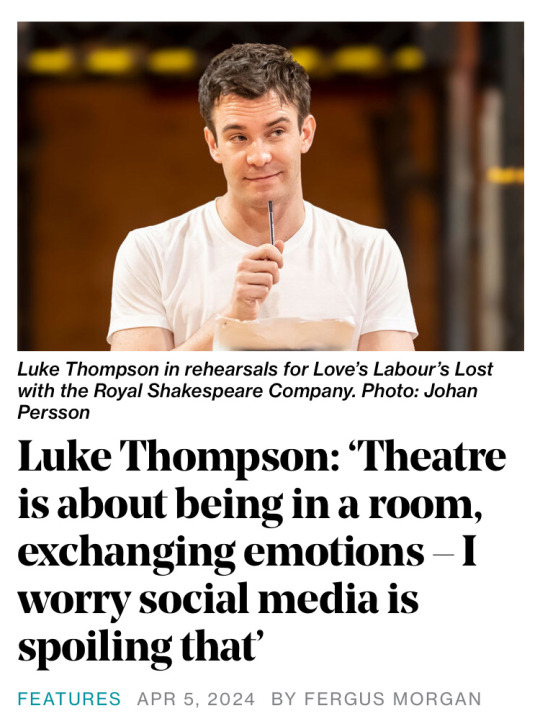
He is best known for Netflix hit Bridgerton, but Luke Thompson’s theatre pedigree encompasses Shakespeare, Greek tragedy and Ivo van Hove’s marathon A Little Life. He talks to Fergus Morgan about his passion for the stage and his worries for its future
Luke Thompson might have shot to stardom thanks to his role as Benedict in Netflix’s smash-hit series Bridgerton, but the 35-year-old actor is most at home on stage.
“I spectate on myself,” Thompson says. “I always have done. It’s been a bit painful in my life. And the only place on earth it doesn’t happen is on stage when someone else is spectating instead and so I don’t have to worry. You’re watching me so I don’t have to watch myself. I feel free. Those are the best moments of my life.”
Fortunately, Thompson has not been short of stage work. Born in Southampton in 1988, he grew up just outside Paris, returning to the UK to study English and drama at the University of Bristol, before training at RADA. He landed his first job almost immediately after graduating in 2013: playing Lysander in Dominic Dromgoole’s staging of A Midsummer Night’s Dream at Shakespeare’s Globe in London.
Since then, alongside screen roles in BBC One’s In the Club and Bridgerton, Thompson has starred in Julius Caesar at the Globe, Oresteia and Hamlet – opposite Andrew Scott – at London’s Almeida, and King Lear and A Little Life in the West End. Both he and co-star James Norton were nominated for Olivier awards for their performances in Ivo van Hove’s acclaimed adaptation of Hanya Yanagihara’s hard-hitting novel.
“A Little Life was such an intense experience,” Thompson says. “Intense in a good way, I mean. The material was very bleak, but acting is always pleasurable because you are indulging in a fantasy, even if it’s a dark one, and that is inherently fun.”
Thompson also thinks that theatre has lost some of its belief in itself. “Theatre is supposed to be provocative. I’m not on social media, but I think it can be very aggressive and vicious, and I think theatres cave to that a bit. Deep down, theatre is the opposite of social media. It is about people being in a room, exchanging opinions and emotions. I worry that social media is spoiling that a bit, which is a shame.”
What production made you fall in love with theatre?
I remember standing in the Yard at Shakespeare’s Globe in 2009 and watching Thea Sharrock’s production of As You Like It, and thinking: ‘Oh, wow, this is really funny and it actually works. When done simply and confidently, Shakespeare still speaks to us today.’ For my first job to be at the Globe a few years later was magical.
What are you finding inspiring at the moment?
I love watching Ivo [van Hove]’s company do stuff. There is something so wild about the acting in his shows. We get very bogged down with facts in this country, but Ivo understands the dream logic of plays. Some of the most moving things I’ve seen don’t completely make sense. I find that inspiring.
What do you wish you could change about the performing arts industry?
I wish theatre had more confidence. Right now, it feels unsure about how useful it is and about how taboo, complex and provocative it should be. I feel as though theatre has lost confidence in its societal function.
What is the worst thing that has happened to you on stage?
There was a scene in A Little Life in which James ran around naked for a bit, then I would bring him clothes. During one show, I couldn’t find his underpants, so I just brought him his trousers and he put them on. But I forgot that people pulled his trousers off again later and they were expecting him to be wearing underpants. James knew it was coming and I knew it was coming and we couldn’t look at each other for the rest of the play. I hope he doesn’t mind me telling that story. It was so funny.
What is the best thing that has happened to you on stage?
There are so many. That sounds naff but I don’t care. I love the challenge of going on stage night after night and trying to make something feel alive in front of an audience.
What role do you really want to play?
I would work with Ivo again at the drop of a hat. And there are loads and loads of roles I would love to play. I did a reading of a rewriting of The Seagull the other day. The role of Konstantin is really beautiful. I’d love to play that. I’d love to play Iago one day, too. Of course, I’d love to play Hamlet but it’s boring to say that.
What projects are you involved in at the moment?
I’m playing Berowne in Emily Burns’ production of Love’s Labour’s Lost with the Royal Shakespeare Company. She has set it on a Polynesian island owned by these big tech billionaires like Mark Zuckerberg or Elon Musk, of which I am one. It’s a really smart concept that unlocks a lot of very interesting stuff in the play. Season three of Bridgerton is coming out in May and June, too. And we will be filming season four soon after that. There’s a lot still to come.
Source: The Stage
24 notes
·
View notes
Text
The Commonwealth
My cranky rant for the day :)
Skip if this is of no interest to you, this is just me letting off steam.
Harry and the Commonwealth
I see a lot of misinterpretation of the Commonwealth of Nations with respect to Harry, and it drives me crazy.
Harry can not be 'King of the Commonwealth'. No such position exists.
Harry can not be 'Head of the Commonwealth'. That symbolic position is held by his father, King Charles III. The position is is appointed by the Commonwealth Heads of Government.
If King Charles III resigns form this role (which is highly unlikely), then another Head of the Commonwealth will be elected by the combined Heads of Government of the Commonwealth.
As the past three Heads of the Commonwealth have been the monarchs of the UK, if that trend continues then it is most likely that Prince William will be elected to the position, otherwise it is likely to go to another Head of Government within the Commonwealth, as discussed before the passing of Queen Elizabeth II. Harry is a non contender in my opinion.
The other top-rank positions of power within the Commonwealth of Nations are the Commonwealth Secretary-General and the Commonwealth Chair in Waiting.
The Chair in Waiting is the head of government of the last country to hold the CHOGM, so Harry automatically is not eligible for this role. It rotates once every two years.
The Secretary-General is elected for a maximum of eight years (two four-year terms) by the assembled heads of government and other ministerial representatives at every other CHOGM (so once every four years). Nominations for the election come from the governments of the member nations of the Commonwealth. it is highly unlikely that Harry would be nominated, and even more unlikely that he would be elected. Past Secretary-Generals are career diplomats and/or politicians, and Harry is neither.
The only position that Harry held with the word 'Commonwealth' in the title is the Presidency of the Queen's Commonwealth Trust, a charity that "provide[s] access to a global network of over 850 young leaders who are able to support each other and access insights and resources to further their work and impact." He was allegedly removed from that position in February 2021 and does not appear on the charity's website.
More detailed information on the Commonwealth of Nations below. Feel free to skip, this is for those interested in a bit about how it all works.
The Commonwealth of Nations
The Commonwealth is a voluntary association of 56 independent and equal countries. The member governments agree to shared goals such as development, democracy and peace. The values and principles of the Commonwealth are expressed in the Commonwealth Charter.
Commonwealth Heads of Government (CHOG)
This is the is collective name for the government leaders of the nations with membership in the Commonwealth of Nations. They are invited to attend Commonwealth Heads of Government Meetings every two years, with most countries being represented by either their head of government or head of state. The Commonwealth Heads of Government attend the Commonwealth Heads of Government Meeting, held once every two years (see below).
CHOGM and the Commonwealth Chair-In-Office
Decisions for and about the Commonwealth of Nations are usually made at the biennial Commonwealth Heads of Government Meeting (CHOGM), where the Commonwealth nations' Prime ministers, Presidents, Kings or Queens, and any other heads of government, assemble for several days to discuss matters of mutual interest.
Every two years the meeting is held in a different member state and is chaired by that nation's respective prime minister or president, who becomes the Commonwealth Chair-in-Office until the next meeting.
The last CHOGM took place in Rwanda in 20222. The next one will be in Samoa in 2024. (see https://thecommonwealth.org/chogm)
The current Commonwealth Chair-In-Office is the President of Rwanda, currently Paul Kagame. The primary responsibility of the Chair-in-Office is to host the CHOGM, a responsibility that starts their term as Chair-In-Office.
The Secretariat of the Commonwealth of Nations and the Commonwealth Secretary-General
The main body within the Commonwealth of Nations is the Secretariat. It It is responsible for facilitating co-operation between members; organising meetings, including the Commonwealth Heads of Government Meetings (CHOGM); assisting and advising on policy development; and providing assistance to countries in implementing the decisions and policies of the Commonwealth.
The Secretariat has observer status in the United Nations General Assembly. It is based at Marlborough House In England and has full diplomatic immunity.
The head of the Secretariat is the Commonwealth Secretary-General.
All Secretariat staff report to the Secretary-General, who is responsible for spending the Secretariat's budget, which is granted by the Heads of Government. It is the Secretary-General (not the ceremonial Head of the Commonwealth), that represents the Commonwealth publicly. The secretary-general is elected by the Heads of Government at the Commonwealth Heads of Government meetings for up to two terms of four years.
The Secretary-General used to be assisted by two, then three Deputy Secretaries-General. As those posts have fallen vacant they have not been filled under the current Secretary-General.
The current Commonwealth Secretary-General is Patricia Scotland, Baroness Scotland of Asthal, PC, KC. Her second four year term expires in 2024.
The Head of the Commonwealth of Nations
The Head of the Commonwealth of Nations is a symbolic position. The position represents the association of 56 independent members. Thirty-six member nations are republics, five have monarchies (Brunei, Eswatini, Lesotho, Malaysia, and Tonga), and fifteen member nations who are also commonwealth realms have the monarch of Great Britain. as their Head of State.
The Head of the Commonwealth serves as a symbolic leader, alongside the Commonwealth Secretary-General and the Commonwealth Chair-In-Office, who also represent the Commonwealth.
The Head of the Commonwealth does not have any constitutional role in any Commonwealth state by virtue of their position as Head of the Commonwealth. They keep in touch with Commonwealth developments through contact with the Commonwealth Secretary-General and the Secretariat.
The head of the Commonwealth or a representative has been present in the past at the Commonwealth Games. The Baton Relay, held prior to the opening of each Commonwealth Games, carries a message from the Head of the Commonwealth to all Commonwealth Nations and territories.
The Head of the Commonwealth broadcasts a special message to the population of the Commonwealth on Commonwealth Day, the second Monday in March. They attend an inter-denominational Commonwealth Day service held at Westminster Abbey.
The position of head of the Commonwealth is not hereditary and successors are chosen by the Commonwealth heads of government. That being said, the three current and previous Heads of the Commonwealth have all been the monarchs of the United Kingdom.
REFERENCE WEBSITES
See also wikipedia for a general overview:
58 notes
·
View notes
Text



Happy Birthday filmmaker Gillian Berrie, born on September 8th 1967 in Glasgow.
In 1996 Gillian co-founded Sigma Films with director David Mackenzie, writing and producing serial award-winning shorts, 'California Sunshine' and 'Somersault'.
Alongside, Gillian gained experience in numerous film and television roles, ie Casting Director on Ken Loach's 'My Name is Joe' (for which Peter Mullan won the Palme D'or in Cannes) and Lynne Ramsay's legendary 'Ratcatcher'.
Casting experience on the aforementioned led Gillian to create the charity, 'Starfish' which then became 'Jumpcut', which morphed into 'Short Circuit', and 'Big Fish Casting' which segued into Kahleen Crawford Casting
Gillian then produced many of David Mackenzie's films including: Last Great Wilderness, Hallam Foe, Young Adam, You Instead (aka Tonight You're Mine), Perfect Sense, Starred Up and the biggest film ever to be make in Scotland, Outlaw King. She was also heavily involved in the post-production, festival, UK/US theatrical release and Oscar campaign for Academy Award Nominee 'Hell or High Water'.
Sigma's films regularly premiere at A-List festivals and have received over 150 awards internationally, including the Prix de Jury in Cannes for Red Road, and the Silver Bear in Berlin for Hallam Foe, as well as numerous BIFA and BAFTA nominations and awards.
At the Scottish BAFTA New Talent Awards in 2002 Gillian won the BAFTA for Outstanding Achievement.
In order to create a vibrant hub for the film community in Scotland, Gillian founded the 65,000 square ft state of the art, Film City Glasgow in 2004. Since then it has been a full house of productions and film-makers.
In 2012 she founded 'Jumpcut', the UK's one and only, intensive, mentor-led Summer School to provide a fast-track for youngsters into working in the film industry. This project was a runaway success. Over 75% of the participants went onto working in the industry. It ran for two years and won several awards.
She also co-produced the multi-prize winner 'Dear Frankie' and Jonathan's Glazer's 'Under the Skin' (which won 23 awards and received 110 nominations).
Gillian also produced several features for first time feature film directors, including David Mackenzie, Colin Kennedy, Andrea Arnold, Morag MacKinnon and Ciaran Foy, as well as numerous additional shorts including the lauded I Love Luci.
Gillian continues to contribute to the next generation of Scottish film-makers through Short Circuit, which is in its 3rd year and has so far given the first opportunities in film-making to hundreds of new-comers and produced dozens of short films and is developing a number of feature films.
Short Circuit is Scotland's hub for filmmaking talent, supporting the creative and professional development of new and emerging writers, directors, and producers.
Over three years, Short Circuit's film commissioning strand ‘Sharp Shorts’ will award over £400,000 in funding across 27 filmmaking teams, creating opportunities for Scotland's most exciting emerging new screen talent.
‘Sharp Shorts’ has become one of Scotland's most diverse creative initiatives, with an overwhelming majority of female filmmakers as well as significant representation across the LGBTQ+, non-white and disabled communities.
The first batch of short films are screening internationally at festivals such as SXSW, BFI Flare, EIFF, Dinard, LSFF, Berlin, with multiple awards. In particular, Sean Lionadh's short Too Rough has won 11 awards to date.
The ‘First Features’ strand, with a fund of over £300,000, will support 30 new writers, directors, and producers, enabling Scotland-based filmmakers to take a career-defining step towards making their debut feature.
In 2022, Berrie exec-produced the critically acclaimed Pilot and 2nd episode of the Disney/ FX series Under the Banner of Heaven for which Andrew Garfield was nominated for an Emmy .She also produced Taron Egerton's feature, Tetris, which I was impressed with.
Relay, about a broker of lucrative payoffs between corrupt corporations and the individuals who threaten them breaks his own rules when a new client seeks his protection to stay alive. is the latest film she has produced, it actually premieres today at the Toronto International Film Festival. Next up is a thrilled called Fuze where construction workers in London unearth an unexploded WWII bomb, forcing evacuation. Opportunistic thieves use the chaos as cover for an elaborate heist.
7 notes
·
View notes
Text
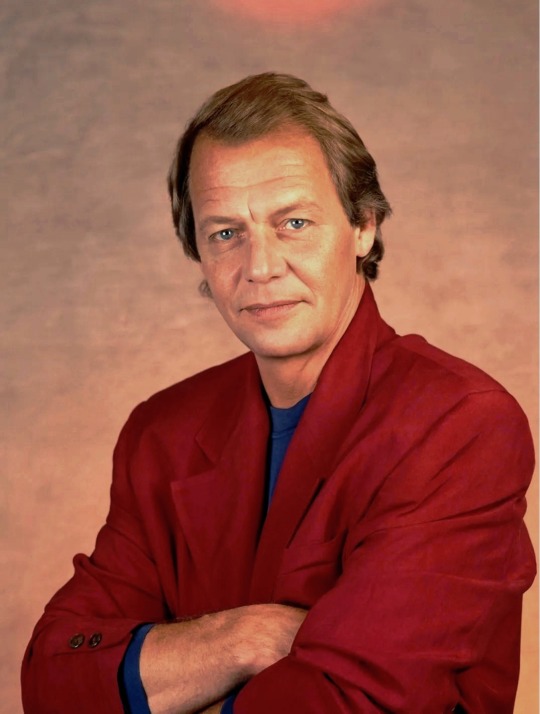
David Soul (born David Richard Solberg; August 28, 1943 – January 4, 2024) Actor and singer known for his role as Detective Kenneth "Hutch" Hutchinson in the television series Starsky & Hutch from 1975 to 1979; Joshua Bolt on Here Come the Brides from 1968 to 1970. As a singer, he scored one US hit and five UK hits with songs such as "Don't Give Up on Us" (No. 1 in US, Canada, and UK) in 1976 and "Silver Lady" (No. 1 in UK) in 1977. He also starred in the 1979 hit TV movie adaptation Salem's Lot by Stephen King.
Soul first gained national attention as the "Covered Man" appearing on The Merv Griffin Show in 1966 and 1967, on which he sang while wearing a mask. He explained: "My name is David Soul, and I want to be known for my music." The same year, he made his television debut in Flipper.
In 1967, he signed a contract with Columbia Pictures and following a number of guest appearances, including the episode "The Apple" from the second season of Star Trek, he landed the role of Joshua Bolt on the television program Here Come the Brides with co-stars Robert Brown, Bobby Sherman and Bridget Hanley. The series was telecast on the ABC network from September 25, 1968, to September 18, 1970. In 1972, he co-starred as Arthur Hill's law partner on Owen Marshall: Counselor at Law. Following numerous guest-starring roles on TV, including The Streets of San Francisco.
His breakthrough came when he portrayed Detective Ken "Hutch" Hutchinson on Starsky & Hutch, a role he played from 1975 until 1979. During his career he made guest appearances on Star Trek, I Dream of Jeannie, McMillan & Wife, Cannon, Gunsmoke, All in the Family, and numerous TV movies and mini-series, including Homeward Bound (1980), World War III, and Rage (1980), a TV movie commended on the floor of the U.S. Senate and for which he received an Emmy Award nomination. Soul also starred with James Mason in the 1979 TV miniseries adaptation of Stephen King's Salem's Lot, which was edited and released as a theatrical feature film in some countries.
He continued to make guest appearances in various television series. He starred in the miniseries The Manions of America as Caleb Staunton in 1981. He starred in the short-lived 1983 NBC series Casablanca, playing nightclub owner Rick Blaine (the role that was made famous by Humphrey Bogart in the 1942 film Casablanca), and co-starred in the NBC series The Yellow Rose during the 1983–1984 season. He also starred in the television adaptation of Ken Follett's wartime drama The Key to Rebecca (1985) directed by David Hemmings. He later starred as the infamous Florida robber Michael Platt in the TV movie In the Line of Duty: The F.B.I. Murders (1988), which depicted the 1986 FBI Miami shootout, subsequently used as an FBI training film. Soul also directed the episode "No Exit" of the 1980s TV series Miami Vice. (Wikipedia)
IMDb Listing
#David Soul#TV#Obit#Obituary#O2024#Starsky and Hutch#Here Come the Brides#Casablanca#Salem's Lot#Owen Marshall: Counselor at Law#The Manions of America
23 notes
·
View notes
Text

Chill Chill presents The BL Character General Election 2024! You can vote for your fav characters in the categories:
King of seme
King of uke
Prince of seme
Prince of uke
Knight of sub character
You can vote once a day. Give your favs Big Love!
[VOTE HERE]
I'm happy they're doing this because for some reason they've stopped including Best Seme and Best Uke on their annual BL Award in recent years. So now we have a chance to vote for them (they include characters from works since March/April 2019 that received lots of nominations during the nomination period).
So I try to remember to vote every day ^-^ I have a couple of favs for most categories, so I switch between them every day. Hopefully one of them will win~
The results will be announced on 13/12/24. A long time to wait...
(Maybe I'll update this post with my choices after the voting period ends. And yes, BLCDs and seiyuu influenced my choices obviously ^_~)
8 notes
·
View notes
Note
I always wonder how the kings birthday honours list works. Do they have specific people on staff that keep track, like one for the arts, education, science etc? In my mind I prefer to think Charles just went one day into office and said give one to Rebecca Ferguson, big fan.
Hate to be the one to burst the bubble but the royals have no involvement in the actual process of nominating and picking people for standard honours. The King just rubber stamps it at the end and then hands them out (or has a relative do it). You can find out the detail on the UK government website (or just google how does the U.K. honours system work) but here’s a graphic:

#ask#anon#british royal family#although I do like to think David Beckham pissed them off and they keep vetoing him
9 notes
·
View notes
Text
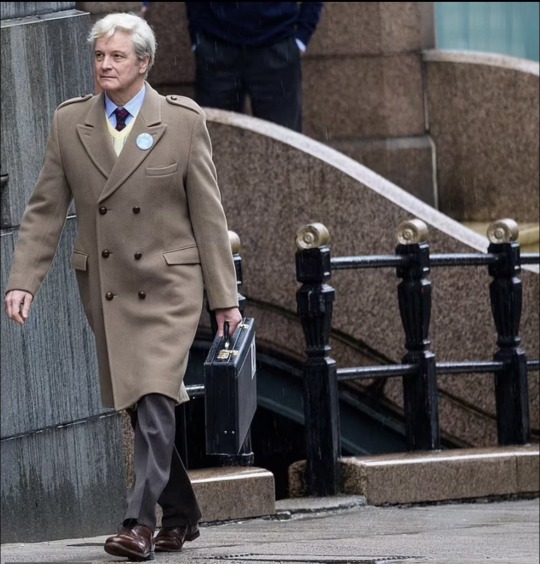
Colin Firth, filming Lockerbie and embodying Dr Jim Swire, 88, in Glasgow as he sported Jim's famous 'Lockerbie: The Truth Must Be Known' badge. 📸 © Wattie Cheung
Sky drama and Peacock “Lockerbie”.
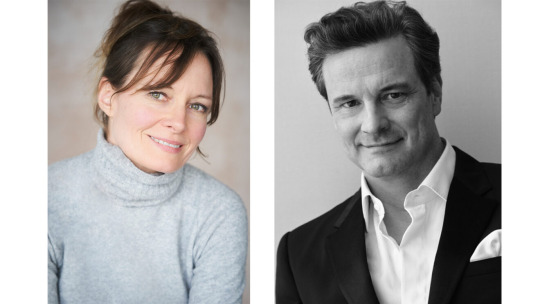
It's not the one original series "Lockerbie," about the 1988 flight disaster. Sky and Peacock began filming in Scotland in February and BBC, Netflix and MGM started programming in March.
The cast members in Lockerbie Colin Firth (The King’s Speech, A Single Man, The Staircase) join Catherine McCormack (Slow Horses, Temple, Lucan) to play Jane Swire opposite Firth’s Dr Jim Swire.
Known as the Lockerbie bombing and the Lockerbie air disaster in the UK, it was described by Scotland's Lord Advocate as the UK's largest criminal inquiry led by the smallest police force in Britain, Dumfries and Galloway Constabulary.
The five-part series, featuring Oscar-winning actor Colin Firth, is based on the tragic Lockerbie terror attack on 21st December 1988 when Pan Am flight 103 from London to New York exploded over the Dumfries and Galloway town, killing all 259 on board and 11 residents.
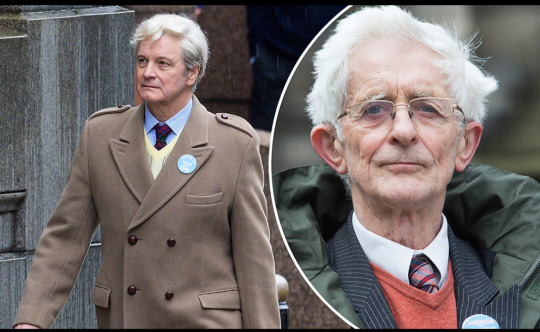
Colin Firth, will play Dr Jim Swire, a doctor who lost his daughter, Flora, in the 1988 tragedy. Writers also took inspiration from Jim's book, The Lockerbie Bombing: A Father's Search for Justice.
In the wake of the disaster, Dr Jim Swire (Firth), is nominated spokesperson for the UK victims’ families, who have united to demand truth and justice. Travelling across continents and political divides, Jim embarks on a relentless journey that not only jeopardises his stability, family and life, but completely overturns his trust in the justice system. As the truth shifts under Jim’s feet, his view of the world is left forever sullied.
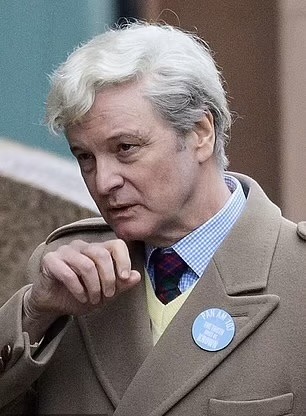
Colin dyed his hair a whitish shade of grey to match Jim's and wore a tartan tie. 📸 © Wattie Cheung
Firth was seen on the set of the new drama in Linlithgow, which will close several roads in the east end and city centre during the filming. Colin was spotted in character and has taken on the role of Jim, 88, the father of one of the 270 victims of the 21st December 1988 Lockerbie bombing.
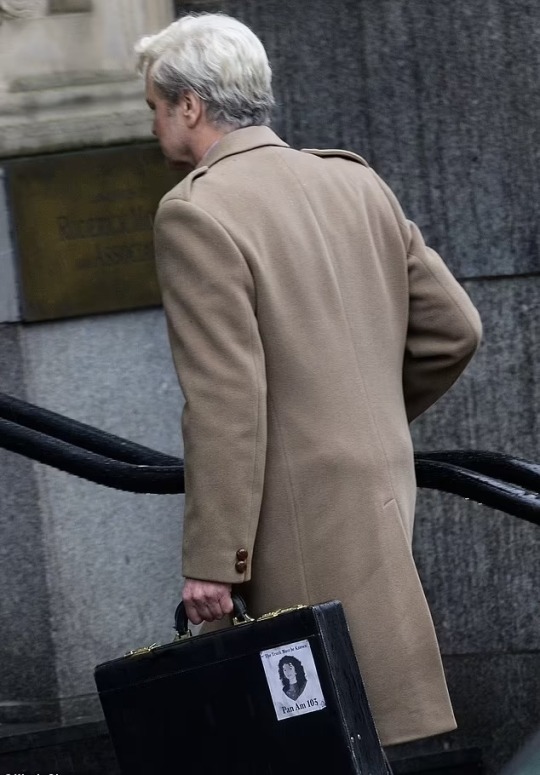
At the back of Colin's briefcase was a drawing of Jim's daughter, Flora Swire, who was on her way to the US to spend Christmas with her boyfriend when Libyan terrorists blew up the plane.
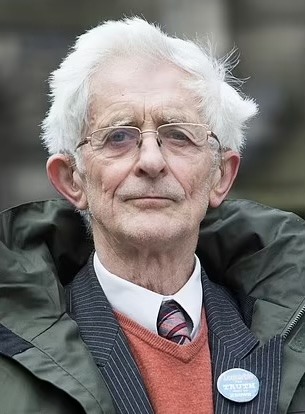
The real Jim (pictured in 2015) became famous after the bombing for his relentless lobbying towards a solution for the difficulties in bringing suspects in the original bombing to trial 📸 © PA
The series is based on the book The Lockerbie Bombing: A Father’s Search for Justice by Jim Swire and Peter Biddulph – as well as other sources.
Lockerbie bombing, The new drama, Flight 103: Film crew in Linlithgow to work on, have been spotted in Glasgow as filming begins in the city. Road closures are in place as filming kick starts.
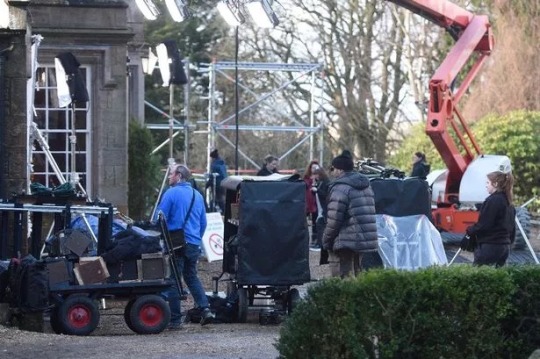
A film crew is currently filming in Linlithgow working on a new TV series based on the Lockerbie disaster.
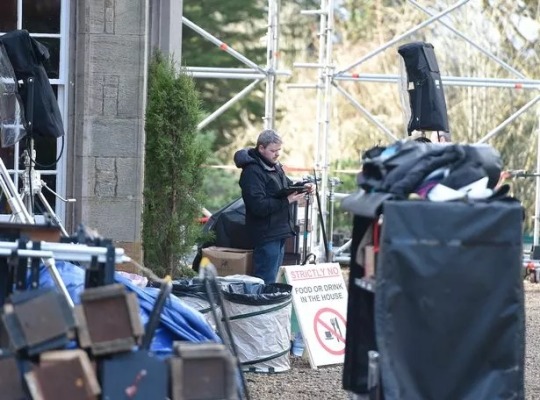
Linlithgow is situated between Edinburgh and Glasgow, to the south of the Firth of Forth and on the edge of Linlithgow Loch. Linlithgow Palace, Stewart residence, birthplace of Mary Queen of Scots, and rest stop between Edinburgh Castle and Stirling Castle.
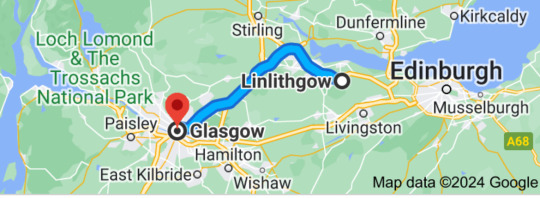
It had been noticed for its similarity to the original Pan Am Flight 103 which exploded over the town of Dumfries and Galloway, 40 minutes into its flight from London to New York.

@getty Images
Scottish playwright David Harrower (Blackbird, Knives in Hens) is the lead writer. Maryam Hamidi (Vigil) is guest writer on an episode. Additional writing comes from Jim, Kirsten and Naomi Sheridan.
BAFTA Award-winning Otto Bathurst (Peaky Blinders, The Winter King) is lead director. Jim Loach (Save Me) will also direct an episode. Gareth Neame and Nigel Marchant are Executive Producers for Carnival Films. Sam Hoyle is Executive Producer for Sky Studios. Additional Executive Producers include David Harrower, Otto Bathurst, Liz Trubridge, Jim Sheridan, Kirsten Sheridan and Oskar Slingerland.
youtube
A true story with an Academy Award®-winning actor Colin Firth not to be missed 📍
#Lockerbie #ColinFirth #DrJimSwire #book #TheLockerbieBombing: AFather'sSearchfor Justice #SKY #Peacok #truestory #bombing #CatherineMcCormack #Linlithgow #Scotland #PanAmflight103 #DumfriesandGalloway #disaster #filming #newdrama #FloraSwire #JaneSwire #series #Libyanterrorists #plane #LockerbieairdisasterintheUK #policeforce
A release date for the series hasn't yet been set.
Posted 6th March 2024
14 notes
·
View notes
Text
Watched Death of Stalin again with the gang last night and
a) what a masterpiece of satire, possibly the last truly great piece of satire?
b) calling it a comedy, while technically accurate as it makes me laugh out loud, is such a disservice to how deftly it balances comedy with being absolutely serious about the atrocity, the fear, the deep dread of that circumstance. It couldn't be any longer than 1hr45 because the human body can't take that level of stress
c) the historical inaccuracies are there, sure, and some of them are questionable as to the purpose, but I understand how most of them are there because the reality was too extreme for an audience that is not well-versed in that period of history to buy into. Especially a British audience (there is an ongoing issue of British culture trying and failing to "map onto" Russian culture when they are so different, and I think Ianucci made a very definitive choice) and
d) god the whole cast is fantastic but to get Simon Russell Beale to do cinema or television is huge anyway, he's pretty much exclusively the king of the stage in the UK, and he gives a masterclass performance. Genuinely nuts that he was only nominated for one award for it.
15 notes
·
View notes
Text
Jimin FACE Master List

Master Lists
FACE in the Press Master List
Set Me Free Part 2 Master List
Others
Ignite dance Like Crazy in Trafalgar Square
Billions Club
Like Crazy hits 1 billion
Fools for Jimin
Beat Coin
BLVSH celebrating the one year anniversary of Like Crazy
FACE live highlights
Congratulations Jimin! One year with FACE!
One year on!

Big Week for Jimin on the Charts
FACE Spotify Hero Film
FACE on UK iTunes
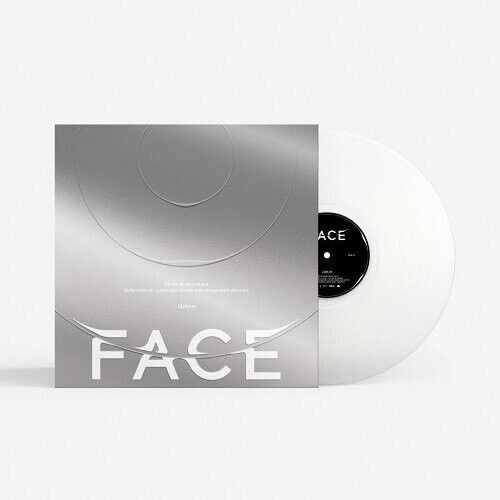
Letter on Vinyl
Face on Vinyl
Waiting for FACE

Best Male Artist Award
FACE Photoshoot
Jimin's MAMA Nominations

Jimtober Coincidences
Tetris is the biggest Jimin fan
FACE flashback - Green room riffing
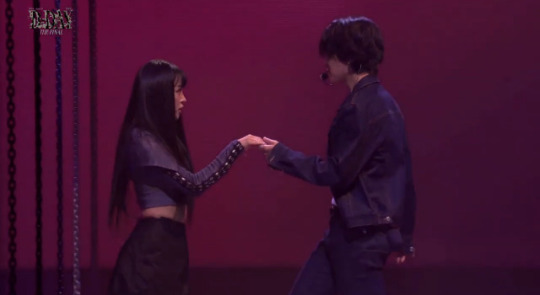
FACE No.1 in Nicaragua
Jimmy Fallon's Version of Like Crazy
Congratulations Jimin!

Jiyoon is next! That sounds Korean. Well he wasn't wrong! Ha ha ha ha ha!
Jimin's Like Crazy co-writers receive their Billboard Hot 100 #1 plaques
Like Crazy Songs of the Summer
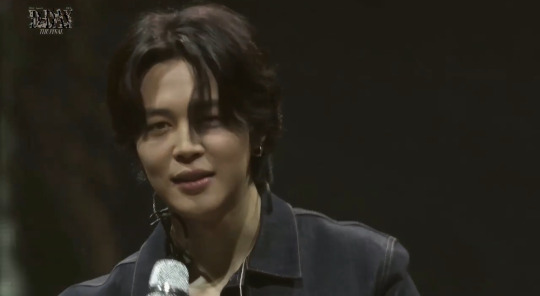
Jimin Like Crazy Mnet Kpop
This is hilarious
Shall we talk about this?
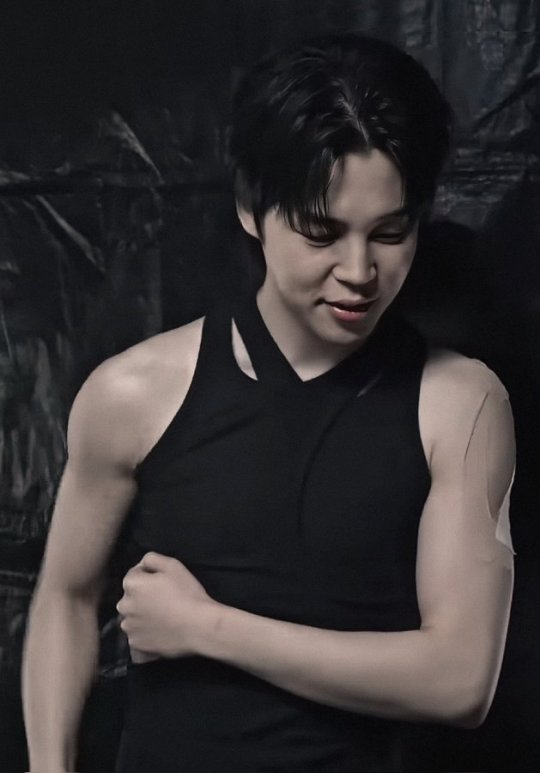
My God he looks so fine
Jimmy will be singing Jimin's Like Crazy for his August Song Challenge
FACE 100 day anniversary

Lost in the lights (of his eyes)
An IG shout out from Geffen Records
Dear.ARMY

Jimin's NYC interview with Vogue
JM on IG - More photos from the LC MV set
The way he moves
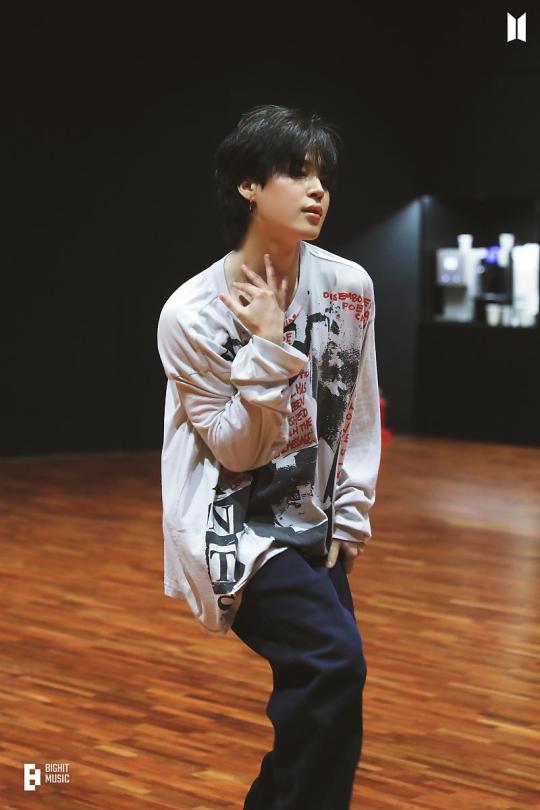
Yoonmin Like Crazy
He's so funny!
Like Crazy on the UK Charts

Like Crazy Cutie
Like Crazy in London
Jimin
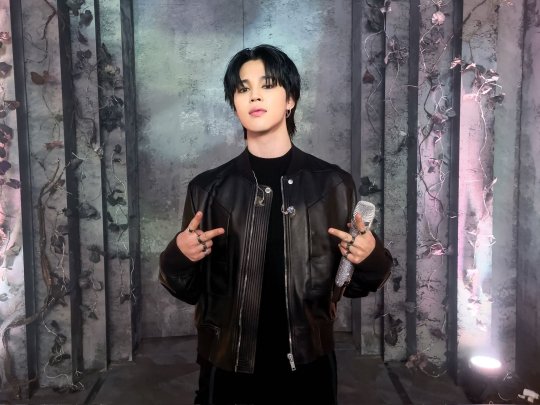
On the Street and Like Crazy Tik Tok Challenge with Enhypen
Jimin's choreography video
Hidden Histories: Kyu Sakamoto, the last Asian soloist to reach No.1 on Billboard Hot 100 in 1963
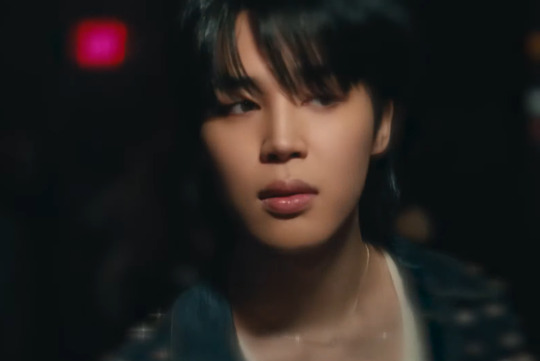
Twitter tribute to Billboard achievement
Jimin on Weverse after Hot 100 No.1
Jimin says Wow!

Like Crazy is my main jam
Be Original Like Crazy
Jimin and his Hyungs

UK ARMY let's celebrate Like Crazy
Beat Coin
Now that's what I call mirroring

Jimin is King
Jimin on MCountdown - It's a Win
Like Crazy with Taeyang

Woah Park Jimin!
Like Crazy Behind the Scenes
Back to the Eighties with Like Crazy
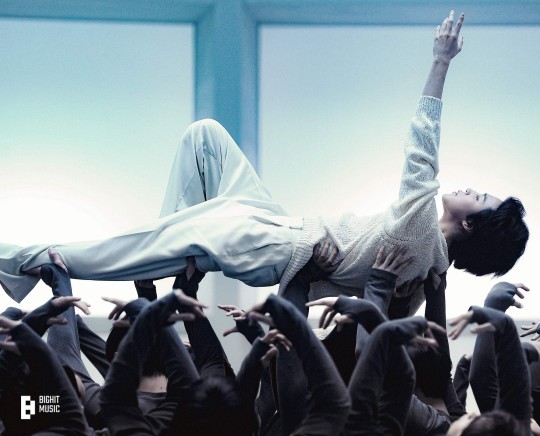
Tonight Show Performance of Like Crazy
Dance Practice for Like Crazy Live Peformance
Jimmy is Jimin's Superfan
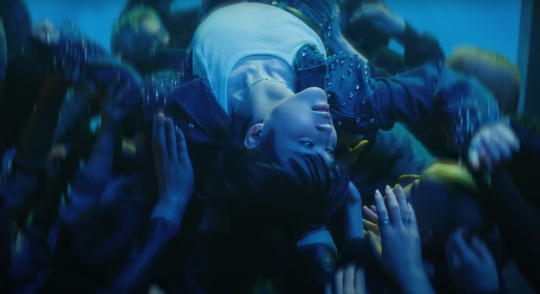
FACE in your face -Glorious Park Jimin
Jimin Fallon
Give me a good ride

(Love) Letter - This is Beautiful
Jimin on Beat Coin
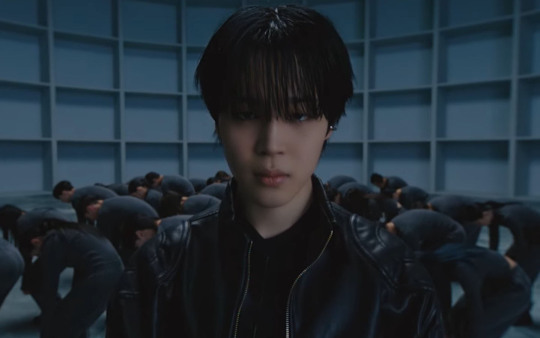
Romantic Film Poll
Like Crazy out on Friday
Emotion of the Day - Confusion (slowly becoming clearer)

Face - Concept Photo (Software Version)
Face - Concept Photo (Hardware Ver.)
Face - Mood

FACE Tracklist and Behind
FACE Promotional Schedule
FACE by Jimin
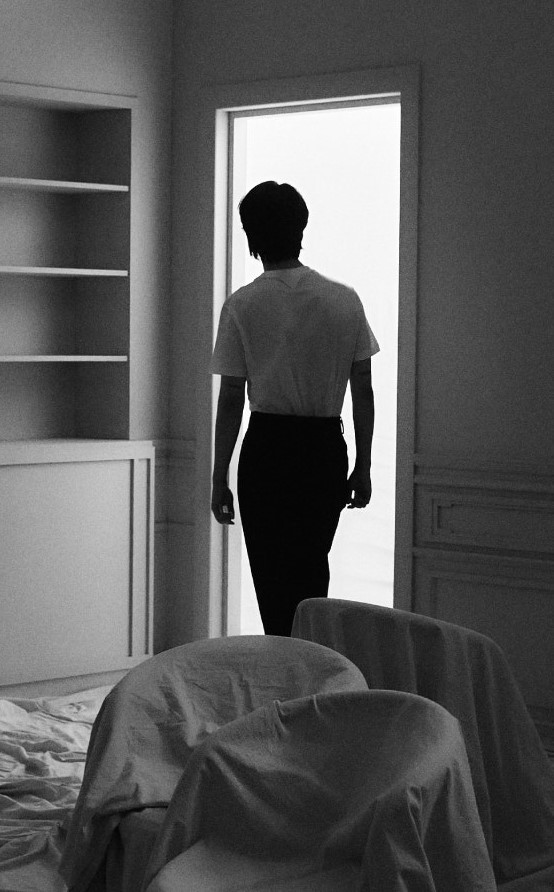
69 notes
·
View notes
Text
https://locusmag.com/2024/03/2024-hugo-astounding-and-lodestar-awards-finalists/
The 2024 Hugo Award nominations have been released!
Nominees for Best Novel:
The Adventures of Amina al-Sirafi, Shannon Chakraborty (Harper Voyager; Harper Voyager UK)
The Saint of Bright Doors, Vajra Chandrasekera (Tordotcom)
Translation State, Ann Leckie (Orbit US; Orbit UK)
Starter Villain, John Scalzi (Tor US; Tor UK)
Some Desperate Glory, Emily Tesh (Tordotcom; Orbit UK)
Witch King, Martha Wells (Tordotcom)
10 notes
·
View notes